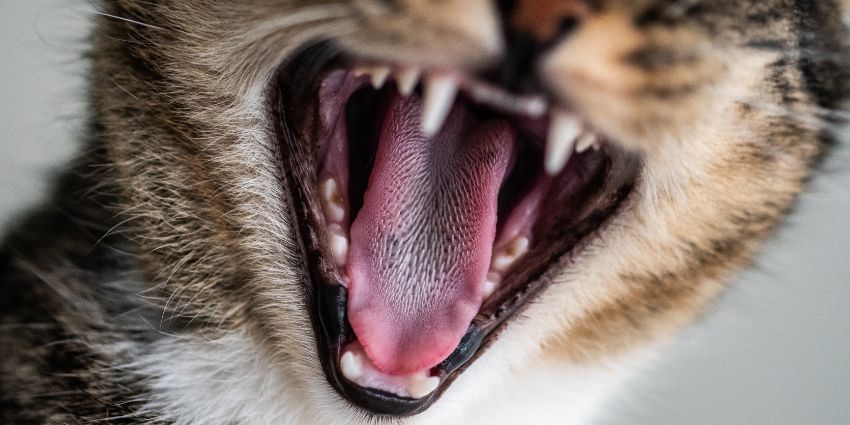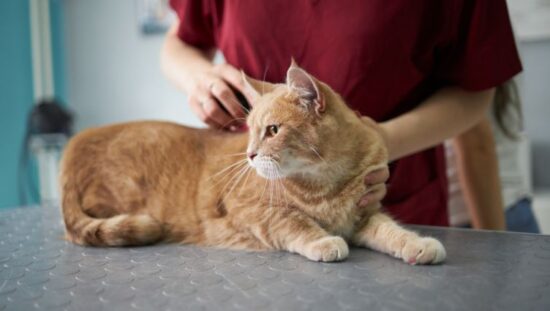Have you ever wondered why your cat suddenly becomes so vocal at bedtime?
This blog offers simple yet effective tips to restore peace to your nights by understanding why your cat’s nocturnal serenades occur.
Explore the secrets of cat behavior, understand cat meows, and discover strategies for getting a good night’s sleep with your cat!

Common Reasons for Cat’s Meowing at Night
In the list below, we will explore the usual causes of a cat meowing during the night, ranging from seeking attention to fulfilling their basic needs.
I. Natural Activity Patterns
Cats are naturally more active during the night. Their activity is most intense during dawn and dusk because they are crepuscular animals. This behavior in the wild helps them hunt for food when their prey is also active.
In a home environment, your cat might show similar behavior, resulting in more activity during the night. Recognizing and respecting their natural schedule can help you create an environment that aligns with their active times, making sure everyone gets along happily.
II. Health Issues
Sometimes increased meowing at night can be a sign of health issues. Conditions like hyperthyroidism or kidney disease might be the reasons. These health issues can make your cat feel uncomfortable, making them express their discomfort through vocalizations.
III. Environmental Changes
Changes in your cat’s surroundings or daily routine can make them more prone to meowing, especially at night. Cats like routines and they can be affected by changes in their surroundings, such as a new piece of furniture, a different feeding schedule, or even a recent move. Understanding and slowly introducing your cat to these changes can help decrease nighttime meowing.
IV. Attention-seeking and Boredom
When your cat feels bored or lonely, they might meow to get your attention. Cats are social animals and can get a bit vocal when they’re feeling neglected or not entertained enough.
Making sure your cat gets plenty of playtime, has toys, and interacts with you during the day can reduce nighttime meowing caused by boredom.
V. Age-Related Factors in Nighttime Meowing
As cats get older, they might meow more during the night because their behavior changes. This could be connected to a decline in thinking ability or a decrease in their senses.
Giving extra comfort and attention can help your older cat feel more secure and reduce nighttime meowing.
Regular vet check-ups are important to address any age-related issues and ensure your cat stays healthy.
Practical Solutions to Reduce Cat’s Meowing at Night
Discover simple ways to help your cat meow less at night in the following list. These tips can bring more peaceful nights for both you and your furry friend.
I. Check if Anything is Waking or Disturbing Your Cat
The first step in reducing your cat’s nighttime meowing is to check if anything is bothering them. Small things like turning off bright lights and keeping the litterbox clean can have a big impact.
Cats like clean surroundings. Keeping the litterbox clean can motivate your cat to use it regularly and ensure a clean and pleasant space for them.
II. Play and Engagement Before Bedtime
Play and interact with your cat before bedtime to tire them out. Using toys or spending quality time together can help use up your cat’s energy, increasing the chances of a calm night’s sleep.
III. Leave Out Food and Water
Make sure your cat has food and water before bedtime. This simple step addresses their hunger and thirst, helps keep your cat happy, and guarantees a quiet night.
Understanding Your Cat’s Vocalizations
Let’s explore the meanings behind various meow sounds and their potential meanings:
- Short and Sweet Meows- These meows usually mean a greeting. Your cat might be saying hello or showing a bit of curiosity.
- Chirping or Chirruping- These bird-like noises, usually show excitement or anticipation. Cats often make these sounds when watching birds or prey through a window.
- Purring Meows- Purring while meowing typically means your cat is content and happy. Your cat might be looking for attention, showing affection, or just enjoying the moment.
- Loud and Persistent Meows- Loud and persistent meows from your cat can signal a strong desire for something specific, like food, playtime, or attention. It’s their way of making sure you hear and respond quickly.
- Yowling or Wailing- If your cat makes loud and long yowling sounds, it might mean they are upset, uncomfortable, or want to mate. If this happens a lot, especially if it’s new behavior, it’s a good idea to take your cat to the vet to check if everything is okay.
Conclusion
Remember that your cat’s nighttime meowing is their way of expressing needs or feelings. Check for any issues, play with them a bit, and make sure they have food and water. This helps make nights calm.
Understanding your cat’s meows, whether it’s a quick hello or an excited chirp, makes your bond stronger. With these easy steps and knowing your cat’s language, you both can enjoy a quiet and comfy night.


